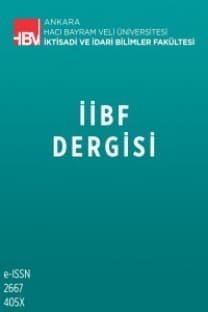ULUSLARARASI HUKUKTA TOPRAK BÜTÜNLÜĞÜ İLKESİ, TANIMA DOKTRİNİ VE BİR NORM OLARAK AYRILMA HAKKI
“Ulusal self determinasyon” genellikle pozitif bir ilke olarak kabul edilirken; ayrılma hakkı kaos, istikrarsızlık ve yıkıcılıkla ilişkilendirilen negatif bir kavramdır. Aslında rızaya dayalı ayrılma hakkı problematik değildir. Asıl sorun, hiçbir haksızlığa uğramayan ve ayrılmasına rıza gösterilmeyen bir grubun ayrılmasıdır. Soğuk Savaş sonrası döneme kadar tek yanlı ayrılma olaylarına karşı küresel tabu devam etmiş ve toprak bütünlüğü ilkesine üstünlük tanınmıştır. Sömürgecilik dışı durumlarda self determinasyon bir bağımsızlık hakkı olarak değil, daha ziyade mevcut bir devletin içinde özerklik uygulaması olarak görülmüştür. Soğuk Savaş sonrası dönemde tek yanlı ayrılmalar farklı bağımsız devletlerde meydana gelmektedir. Avrupa’da da bağımsızlık sloganları yükselmektedir. Katalan, İskoç ve Flaman milliyetçiliği birbiriyle ilintili üç faktör tarafından şekillenmektedir: Kimlik, Otonomi ve Ekonomi. 2008’de Kosova ve 2011’de Güney Sudan’ın devlet olarak tanınması dışında söz konusu ayrılıkçı birimlerin hiçbirisi şimdiye kadar devlet olarak tanınmamıştır. Soğuk Savaş’ın sona ermesi, egemenlik ve ülkesel bütünlük kavramlarına zorluklar çıkarmakla birlikte fiiliyatta ayrılma konusundaki geleneksel görüşleri kökten değiştirmemiştir. Self determinasyon ve ayrılma amaçlı çatışmalar en sürekli ve yıkıcı çatışma şekilleri arasındadır. Bu çatışmaları önlemede kesin bir zafer ve uzamış çatışmalar dışında bir başka seçenek vardır. Bu “müzakere” seçeneğidir.
Anahtar Kelimeler:
Ayrılma, Kendi Kaderini Tayin, Tanıma, Toprak bütünlüğü, Otonomi, Federalizm.
THE PRINCIPLE OF TERRITORIAL INTEGRITY, THE DOCTRINE OF RECOGNITION AND THE RIGHT TO SECESSION AS A NORM IN INTERNATIONAL LAW
“National self-determination” is generally accepted as a positive principle whereas the right to secession is a negative concept associated with chaos, instability and destructiveness. The consensual right to secede is not problematic. The real problem is the secession of a group that is never subject to injustices and is not given consent to secede. The global taboo against the cases of unilateral secession stood until the post-Cold War era; the principle of territorial integrity was recognised as superior. Except for colonialism, self-determination that is not accepted the right to independence is approved the autonomy application in a existing state. In the postCold War era, unilateral secessions has generally occurred in newly independent states. Also in Europe, independence slogans are increasing day by day. The Catalan, the Scottish and the Flemish nationalisms are shaped by three related factors: Identity, Autonomy and Economy. Except for Kosovo in 2008 and South Sudan in 2011, none of the separatist unit were recognized as a state by now. Though the traditional opinions about the separation that fashes the concepts as the end of the Cold War, sovereignty and territorial integrity, the radical opinion of the traditional opinions about the separation can not be changed. Conflicts targeting self-determination and secession are generally among the most perpetual and destructive conflicts. There exists another choice apart from the choices of ultimate victory and the prolonged conflict. This is the choice of negotiation.
Keywords:
Secession, Self-determination, Recognition, Territorial Integrity, Autonomy, Federalism.,
- Yayın Aralığı: Yılda 3 Sayı
- Başlangıç: 1999
- Yayıncı: Ankara Hacı Bayram Veli Üniversitesi
Sayıdaki Diğer Makaleler
BELEDİYE HİZMET KALİTESİ ÖLÇÜMÜ: KEÇİÖREN BELEDİYESİ’NDE BİR UYGULAMA
Fatih ŞANTAŞ, Özgür UĞURLUOĞLU, Aysun KANDEMİR, Yusuf ÇELİK
LİDER-ÜYE ETKİLEŞİMİNİN ÖRGÜTSEL ÖZDEŞLEŞME İLE İLİŞKİSİNDE İŞE BAĞLILIĞIN ARACI ROLÜ
Aykut GÖKSEL, Emre Burak EKMEKÇİOĞLU
BÜROKRASİ KURAMLARI VE TÜRK KAMU YÖNETİMİNDE BÜROKRATİK SORUNLAR
ÇOCUK REFAHI: ÇOCUK HAKLARI PERSPEKTİFİNDEN BİR DEĞERLENDİRME
ULUSLARARASI HUKUKTA TOPRAK BÜTÜNLÜĞÜ İLKESİ, TANIMA DOKTRİNİ VE BİR NORM OLARAK AYRILMA HAKKI
Latif ÖZTÜRK, İsa Gürkan MERAL
MULTIMOORA YÖNTEMİ İLE ÜLKE RİSKİ DEĞERLENDİRMESİ
